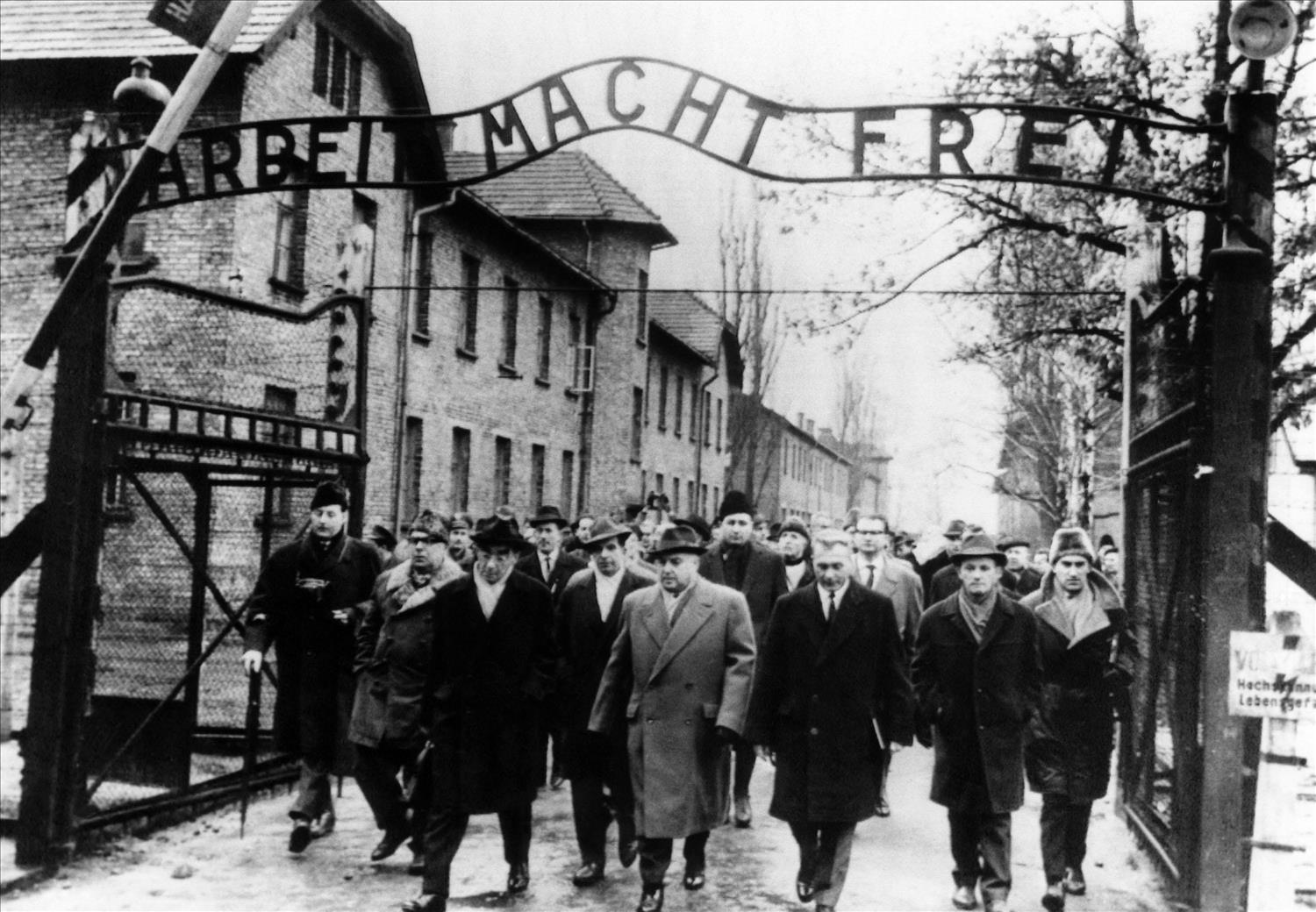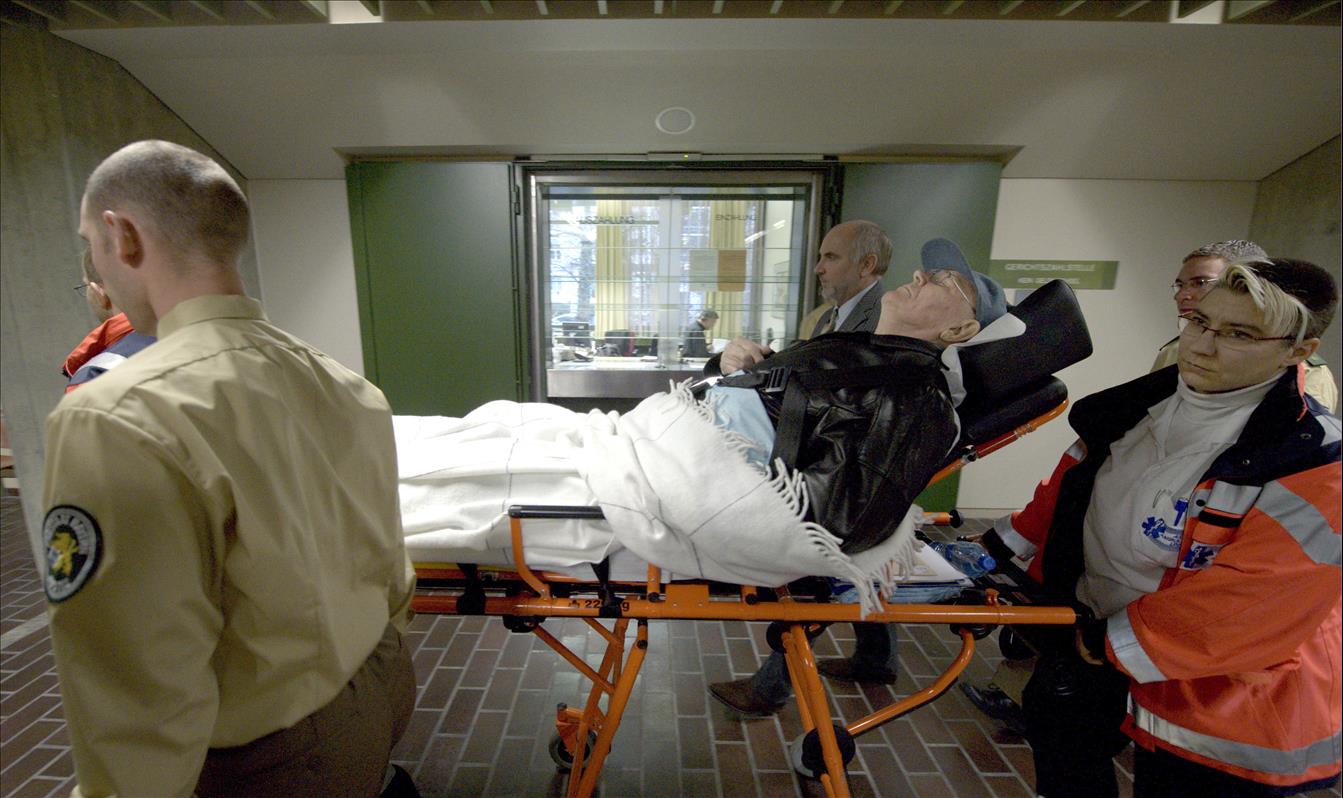Author:
Rainer Schulze
(MENAFN- The Conversation) A 100-year-old man is on trial in Germany this month. The man, who has not been named due to German privacy laws, is charged with“knowingly and willingly” assisting in the of murder of 3,518 people as a former SS guard at Sachsenhausen concentration camp.
He is far from the only elderly defendant to face trial now for crimes committed during the Nazi period. The trial of Irmgard Furchner, 96, a former secretary at Stutthof concentration camp, was to begin last month, but was briefly delayed after Furchner fled from her care home. .
Among other recent cases are John Demjanjuk, 89, in 2009 ; Oscar Gröning, 93, the so-called“accountant of Auschwitz”, in 2015 ; Johann Rehbogen, 93, in 2018 (his case was later dropped because he was deemed“permanently unfit for trial”); and Bruno Dey, 93, in 2019 . Some, like Furchner, are tried in juvenile courts given their young age at the time of the alleged crimes.
The history of prosecution of Nazi crimes is long and complex. Despite the crimes having occurred decades ago, it is still important to bring these cases to trial today.
1940s: Allied planning and control
In their Declaration of St. James's Palace of January 13 1942, allied governments declared it as one of their principal war aims to punish all those guilty of or responsible for war crimes“through the channel of organised justice”.
The founding of the United Nations War Crimes Commission and the Moscow Declaration on German Atrocities, both in 1943, confirmed these intentions. However, they only covered crimes committed against their own nationals, and none referred to the systematic murder of the Jews.
After the defeat of the Nazi regime, in addition to setting up the International Military Tribunal in Nuremberg, the allies conducted a number of trials for crimes committed against prisoners incarcerated at specific concentration camps on German soil, including Bergen-Belsen, Dachau, Ravensbrück, Sachsenhausen and others. These trials involved SS camp commandants, medical doctors, guards and other staff. Again, the emphasis was on atrocities committed against allied nationals.

Members of the Frankfurt war crimes court leaving Auschwitz concentration camp in 1964. Everett Collection Historical / Alamy Stock Photo In December 1945, the Allied Control Council gave German courts the legal authority to prosecute Nazi crimes committed against German citizens, but they had to follow allied provisions. It was only after the establishment of the two German states in 1949 that German courts were freed of allied supervision.
Eschewing the legal category of crimes against humanity, set by the Nuremberg Trials, they could now apply ordinary German criminal law, which was ill-equipped to deal with state-organised mass murder.
1950s: halfhearted efforts
In West Germany especially, the 1950s were characterised by a sharp decline in Nazi war crimes investigations and trials. Instead, there were campaigns for amnesties and reductions of earlier sentences, many led by former high-level Nazis and supported tacitly by conservative politicians.
Prosecutions lacked any serious or systematic effort, and in both German states the emphasis was more on integration and rehabilitation, with the aim of stabilising their war-torn societies, rather than rigorous investigation of Nazi crimes and atrocities. There was widespread silence about the involvement of“ordinary” Germans.
This began to change in West Germany following scandals about former Nazis in prominent positions. As the 50s wore on, several new trials spotlighted the horrors and scale of Nazi atrocities. In October 1958, the Central Office for the Investigation of National Socialist Crimes of Violence was set up by state justice ministers, leading to a rapid increase in investigations.
1960s and beyond: more vigorous investigation
The 1961 trial of Adolf Eichmann in Jerusalem, which was televised and broadcast around the world, and the Auschwitz Trials in Frankfurt (1963-1965) brought the Holocaust back into broad public consciousness. The rebellious young generation in West Germany began to question how Germany had dealt with its past.
However, under German law, even murder had a 20-year statute of limitations, meaning prosecutions could not be brought against culprits if 20 or more years had passed since their crime. This was extended to 30 years in 1969, and abolished altogether in 1979 but even then, the exemption only applied to murder, rather than any other crimes. Courts required prosecutors to present evidence that suspects were directly involved in a specific killing.
This meant that many“ordinary” SS guards, male and female, whose names and whereabouts were known, could not be charged because there was not sufficient evidence for their direct involvement.
Then, during the 2011 trial of John Demjanjuk, a former guard at Sobibór, prosecutors argued that working as a guard at a camp whose only purpose was the extermination of its prisoners, was sufficient for a conviction for accessory to murder.

John Demjanjuk, then 89, was taken into court on a stretcher in 2009. He was convicted of acting as an accessory to the murder of nearly 28,000 Jews at Sobibór extermination camp. dpa picture alliance archive / Alamy Stock Photo To the surprise of many, the court agreed, setting an important legal precedent – now, anyone who played a part in running the machinery of murder could be put on trial. The principle, later extended to cover concentration camps as well, is much more appropriate for the way crimes were committed at Nazi death camps, where it is often all but impossible to pinpoint direct involvement in the killings to a specific person. If it had been applied earlier, many more concentration camp guards could have been prosecuted.
Prosecutors rushed to try and bring people to justice. However, despite the headlines that each case created, few have actually stood trial since Demjanjuk. This is not surprising, given the fact that the crimes were committed almost 80 years ago, and only very few of those involved in any way are still alive.
Serving justice
Lawyers for the victims and their descendants argue that justice must be served, no matter how late. But it is questionable how much justice is done when nonagenarians get prison sentences which they do not have to serve because of ill health.
However, these trials provide a different kind of justice, beyond attributing responsibility. As the allies hoped with Nuremburg, these trials can educate the public about the nature and reach of the Nazi regime. This is particularly important at a time when antisemitism is rising and the number of Holocaust survivors is getting ever smaller.
For many, the atrocities the Nazis committed seem long ago and unrelated to their daily reality. The trials remind everyone that these atrocities did happen, that they happened within living memory, and not just at Auschwitz but at a multitude of locations across Europe.
Former concentration camp guard Bruno Dey said at his 2020 trial:
This feeling is no doubt shared by many Germans. Recent surveys indicate that about one in five Germans believe that the Holocaust gets too much attention, and around 75% of supporters of the right-wing populist party Alternative for Germany think Germans should stop“obsessing over Nazi crimes”.
These late trials force everyone, not just the actual perpetrators but also bystanders and younger generations, to“go over that again” – to listen to what victims and their descendants experienced, no matter how patchy their memories might have become. While uncomfortable, this is vital for Germany's democratic political culture.
The greatest justice to all victims of Nazi persecution that these trials can provide is to trouble and disturb all of us and prevent these crimes from being denied, trivialised or fading into insignificance.

MENAFN05102021000199003603ID1102918671